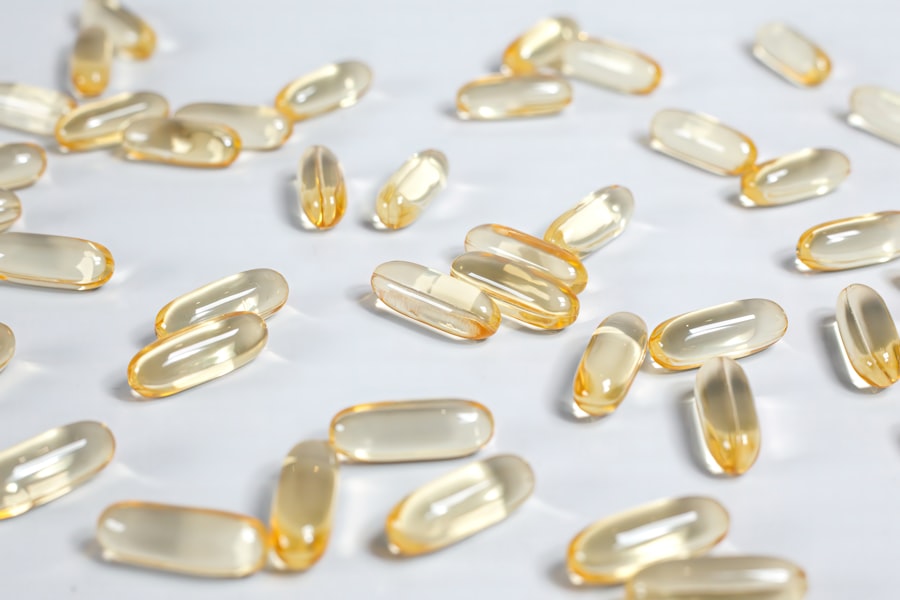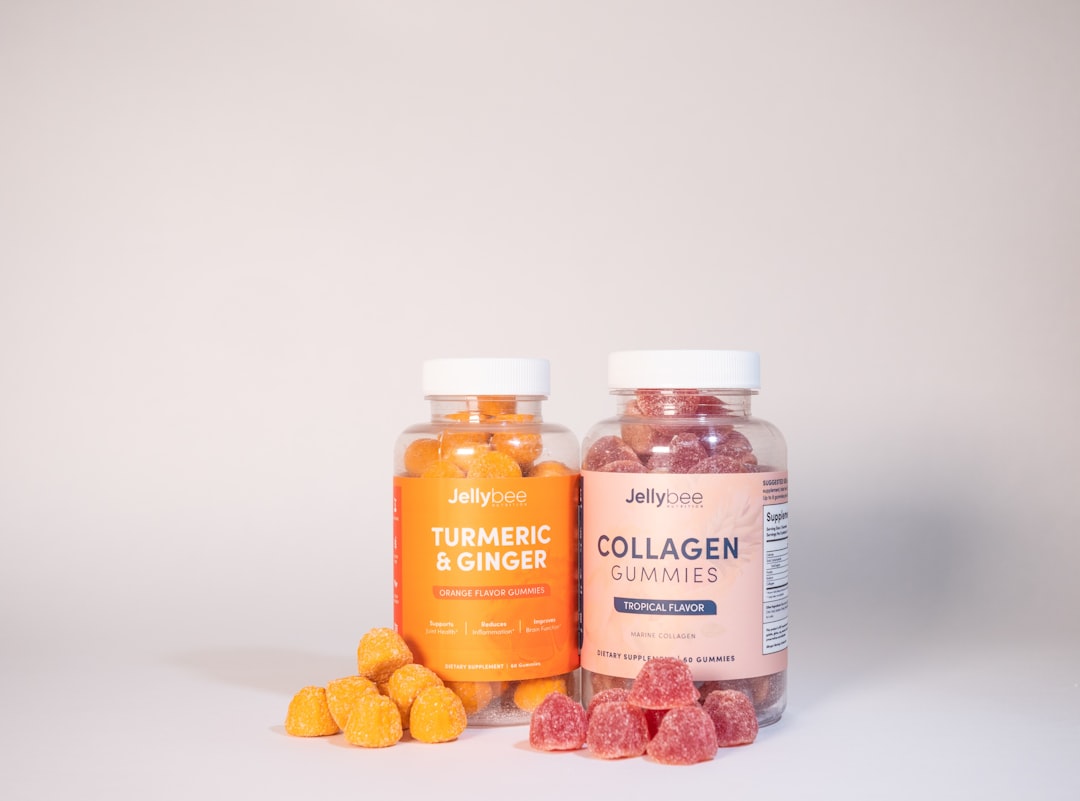As you age, your body undergoes various changes that can affect your nutritional needs. For seniors over 70, maintaining a balanced diet rich in essential vitamins is crucial for overall health and well-being. Vitamins play a vital role in numerous bodily functions, from supporting the immune system to promoting bone health.
As you enter this stage of life, understanding the importance of these nutrients can empower you to make informed dietary choices that enhance your quality of life.
For seniors, the body’s ability to absorb certain vitamins may diminish, making it even more important to focus on nutrient-rich foods or consider supplementation.
By prioritizing vitamins in your diet, you can help ensure that your body receives the support it needs to thrive during your golden years.
Key Takeaways
- Vitamins are crucial for seniors over 70 to maintain overall health and well-being.
- Vitamin D is essential for bone health and can be obtained from sunlight exposure and supplements.
- Vitamin B12 is necessary for the proper functioning of the nervous system, especially in seniors.
- Vitamin C helps boost the immune system and supports collagen production for healthy skin.
- Vitamin A supports vision and immune function, making it important for seniors’ health.
Vitamin D: The Sunshine Vitamin for Bone Health
Vitamin D is often referred to as the “sunshine vitamin” because your body produces it in response to sunlight exposure. For seniors, this vitamin is particularly important for maintaining bone health. As you age, bones can become more fragile and susceptible to fractures, making adequate vitamin D intake essential.
This nutrient helps your body absorb calcium, which is crucial for building and maintaining strong bones. In addition to its role in bone health, vitamin D also supports immune function and may help reduce the risk of certain diseases.
Therefore, incorporating vitamin D-rich foods such as fatty fish, fortified dairy products, and egg yolks into your diet can be beneficial. If you’re concerned about your vitamin D levels, consider discussing supplementation with your healthcare provider.
Vitamin B12: Essential for Nervous System Function

Vitamin B12 is another critical nutrient for seniors, as it plays a key role in maintaining a healthy nervous system and producing red blood cells. As you age, your body’s ability to absorb vitamin B12 from food may decrease due to changes in stomach acidity and digestive function. This can lead to deficiencies that may result in fatigue, weakness, and cognitive issues.
To ensure you’re getting enough B12, consider incorporating sources such as meat, fish, dairy products, and fortified cereals into your meals. If you’re following a vegetarian or vegan diet, you may need to pay extra attention to your B12 intake or consider taking a supplement. Regularly monitoring your B12 levels can help prevent potential complications associated with deficiency and support your overall health.
Vitamin C: Boosting Immune System and Collagen Production
| Benefits of Vitamin C | Recommended Daily Intake |
|---|---|
| Boosting Immune System | 90 mg for men, 75 mg for women |
| Collagen Production | 90 mg for men, 75 mg for women |
Vitamin C is well-known for its immune-boosting properties and its role in collagen production, which is essential for maintaining healthy skin and connective tissues. As you age, your skin loses elasticity and may become more prone to damage. Adequate vitamin C intake can help combat these effects by promoting collagen synthesis and supporting skin health.
In addition to its benefits for skin and immunity, vitamin C also acts as a powerful antioxidant, helping to protect your cells from oxidative stress caused by free radicals. This is particularly important for seniors, as oxidative stress can contribute to various age-related diseases. To increase your vitamin C intake, consider adding citrus fruits, strawberries, bell peppers, and leafy greens to your diet.
These foods not only provide vitamin C but also offer a range of other essential nutrients that support overall health.
Vitamin A: Supporting Vision and Immune Function
Vitamin A is crucial for maintaining healthy vision and supporting immune function. As you age, the risk of vision problems such as macular degeneration increases, making adequate vitamin A intake even more important. This vitamin helps maintain the health of the retina and supports night vision.
Moreover, vitamin A plays a significant role in immune response by promoting the production of white blood cells that help fight infections. Foods rich in vitamin A include carrots, sweet potatoes, spinach, and liver. By incorporating these foods into your meals, you can help support both your vision and immune health as you navigate the challenges of aging.
Vitamin E: Antioxidant Protection for Aging Cells

Vitamin E is a powerful antioxidant that helps protect your cells from oxidative damage caused by free radicals. As you age, the accumulation of oxidative stress can contribute to various health issues, including heart disease and cognitive decline. By ensuring adequate vitamin E intake, you can help safeguard your cells and promote overall health.
In addition to its antioxidant properties, vitamin E also supports immune function and skin health. It can be found in foods such as nuts, seeds, spinach, and vegetable oils. Including these foods in your diet can provide you with the necessary nutrients to combat the effects of aging while promoting vitality and well-being.
Vitamin K: Crucial for Blood Clotting and Bone Health
Vitamin K is essential for proper blood clotting and plays a significant role in bone health by helping regulate calcium levels in the bones and blood. For seniors, maintaining healthy bones is crucial to prevent fractures and osteoporosis. Adequate vitamin K intake can help support bone density and overall skeletal health.
You can find vitamin K in leafy green vegetables like kale, spinach, and broccoli, as well as in fermented foods like natto. By incorporating these foods into your diet, you can ensure that you’re getting enough vitamin K to support both blood clotting and bone health as you age.
Vitamin B6: Supporting Brain Function and Energy Production
Vitamin B6 is vital for brain health and energy production. It plays a key role in neurotransmitter synthesis, which is essential for mood regulation and cognitive function. As you age, maintaining optimal brain health becomes increasingly important to prevent cognitive decline.
Additionally, vitamin B6 helps convert food into energy by aiding in the metabolism of proteins and carbohydrates. Foods rich in vitamin B6 include poultry, fish, potatoes, bananas, and fortified cereals. By ensuring adequate intake of this essential nutrient, you can support both your brain function and energy levels as you navigate the challenges of aging.
Vitamin B9 (Folate): Important for Heart Health and Red Blood Cell Production
Folate, also known as vitamin B9, is crucial for heart health and the production of red blood cells. It helps reduce homocysteine levels in the blood—a risk factor for heart disease—while also supporting proper cell division and DNA synthesis. For seniors over 70, maintaining heart health is paramount to ensure longevity and quality of life.
You can find folate in foods such as leafy greens, legumes, nuts, and fortified grains. By incorporating these foods into your diet, you can help support cardiovascular health while also ensuring adequate red blood cell production to prevent anemia.
Vitamin B3 (Niacin): Supporting Heart Health and Cholesterol Levels
Vitamin B3, or niacin, plays a significant role in supporting heart health by helping regulate cholesterol levels. It can increase high-density lipoprotein (HDL) cholesterol—the “good” cholesterol—while lowering low-density lipoprotein (LDL) cholesterol—the “bad” cholesterol. For seniors over 70, managing cholesterol levels is crucial for reducing the risk of heart disease.
Incorporating niacin-rich foods such as poultry, fish, whole grains, and legumes into your diet can help support cardiovascular health. If you’re concerned about your cholesterol levels or heart health, consider discussing niacin supplementation with your healthcare provider.
Multivitamins for Seniors: Ensuring Comprehensive Nutrient Intake
As you age, it may become increasingly challenging to obtain all the necessary vitamins through diet alone due to changes in appetite or dietary restrictions. This is where multivitamins can play a vital role in ensuring comprehensive nutrient intake. A well-formulated multivitamin designed specifically for seniors can help fill nutritional gaps and provide essential vitamins that may be lacking in your diet.
When choosing a multivitamin, look for one that contains key nutrients tailored to the needs of seniors—such as higher levels of vitamin D, B12, and antioxidants—to support overall health. However, it’s essential to consult with your healthcare provider before starting any new supplement regimen to ensure it aligns with your individual health needs. In conclusion, prioritizing vitamins in your diet is essential for maintaining optimal health as you age.
By focusing on key nutrients such as vitamin D, B12, C, A, E, K, B6, B9, and B3—and considering multivitamins if necessary—you can support various bodily functions that contribute to a healthier lifestyle during your golden years. Embracing these dietary choices will empower you to enjoy life fully while navigating the challenges that come with aging.
For seniors over 70, maintaining optimal health through proper nutrition is crucial, and vitamins play a significant role in this. An article that delves into the best vitamins for seniors over 70 can be found on Explore Senior Health. This resource provides valuable insights into which vitamins are essential for aging adults, helping to support bone health, cognitive function, and overall well-being. For more detailed information, you can read the related article by visiting Explore Senior Health.
💰 The Secret History of the Dollar: How Oil Replaced Gold (The Petrodollar Mystery)
FAQs
What are the best vitamins for seniors over 70?
The best vitamins for seniors over 70 include vitamin D, vitamin B12, vitamin B6, vitamin B9 (folate), vitamin C, and vitamin E. These vitamins are essential for maintaining overall health and well-being in older adults.
Why are these vitamins important for seniors over 70?
These vitamins are important for seniors over 70 because they play a crucial role in maintaining bone health, supporting immune function, promoting heart health, and reducing the risk of age-related diseases. Additionally, they can help with energy levels, cognitive function, and overall vitality.
How can seniors over 70 ensure they are getting enough of these vitamins?
Seniors over 70 can ensure they are getting enough of these vitamins by consuming a well-balanced diet that includes a variety of fruits, vegetables, lean proteins, and whole grains. In some cases, supplementation may be necessary to meet the recommended daily intake of certain vitamins.
Are there any potential risks or side effects associated with taking these vitamins for seniors over 70?
While these vitamins are generally safe for seniors over 70, it is important to consult with a healthcare professional before starting any new supplement regimen. In some cases, excessive intake of certain vitamins can lead to adverse effects, so it is important to follow recommended dosages.
What are some signs of vitamin deficiency in seniors over 70?
Signs of vitamin deficiency in seniors over 70 may include fatigue, weakness, impaired cognitive function, poor wound healing, bone loss, and an increased susceptibility to infections. It is important for seniors to be aware of these signs and seek medical advice if they suspect a deficiency.
